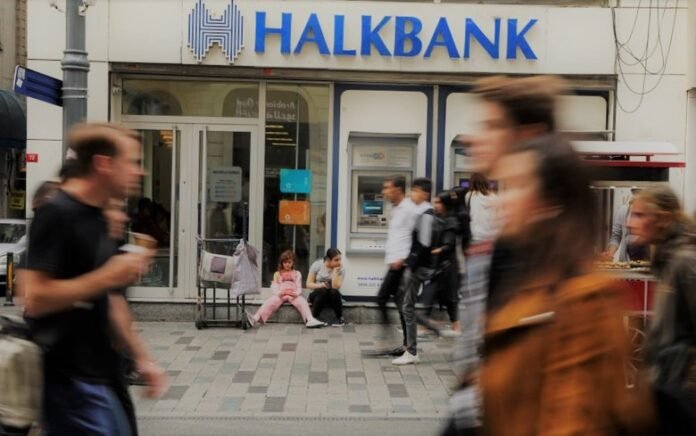A Bewildering Turn: Supreme Court Tosses Turkey’s Halkbank a Lifeline
Halkbank’s Unanticipated Reprieve
In a baffling move, the US Supreme Court has thrown Turkey’s state-owned lender Halkbank an unexpected lifeline, offering the chance to sidestep criminal charges in the US for purportedly aiding Iran in dodging American economic sanctions. Overruling a subordinate court’s verdict, which would have permitted the prosecution to move forward, the court directed the 2nd US Circuit Court of Appeals to reevaluate Halkbank’s bid to quash the case.
The Charges: A Tangled Web of Deception
Back in 2019, the Turkish government’s financial institution found itself in hot water, indicted in New York for bank fraud, money laundering, and conspiracy. Allegedly, Halkbank exploited money servicers and front companies in Iran, Turkey, and the United Arab Emirates to circumvent US sanctions. Despite these accusations, the bank maintains its innocence.
Market Reactions: A Surge of Optimism
Upon hearing the news, Halkbank shares skyrocketed by 10% on the Istanbul stock exchange. Vakifbank, another state-owned Turkish bank, saw its shares leap by 9.9%, while the bourse’s banking index ascended over 4%. This development has only served to further entangle US-Turkish relations, with Turkey’s President Tayyip Erdogan denouncing the American charges as an “unlawful, ugly” maneuver.
Legal Quagmire: Sovereign Immunity in Question
Halkbank’s argument hinged on its assertion that, as an extension of the Turkish government, it should enjoy the same legal protections as the nation itself. The Supreme Court, however, repudiated the bank’s claim that the Foreign Sovereign Immunities Act (FSIA) safeguards it, stating that the 2nd Circuit failed to adequately examine whether Halkbank merits immunity under “common law” principles.
In a dissenting opinion, Justices Neil Gorsuch and Samuel Alito concurred that the FSIA applies, but maintained that Halkbank’s prosecution could still advance under the statute’s exceptions for commercial activity in or impacting the United States. President Joe Biden’s administration has countered that the FSIA is inapplicable to criminal prosecutions and that, even if it were, Halkbank’s actions fall within the law’s exception to sovereign immunity for transgressions related to commercial activities.
The Alleged Scheme: Billions in Covert Transactions
US prosecutors claim that Halkbank converted oil revenue into gold and cash for Iranian interests, fabricating food shipment records to account for transfers of oil proceeds. Moreover, they contend that the bank facilitated Iran’s clandestine transfer of $20 billion in restricted funds, with a staggering $1 billion laundered through the US financial system. Despite these allegations, the 2nd Circuit’s 2021 ruling sided against Halkbank, concluding that even if the FSIA shielded the bank, the charged conduct fell under the commercial-activity exception.











